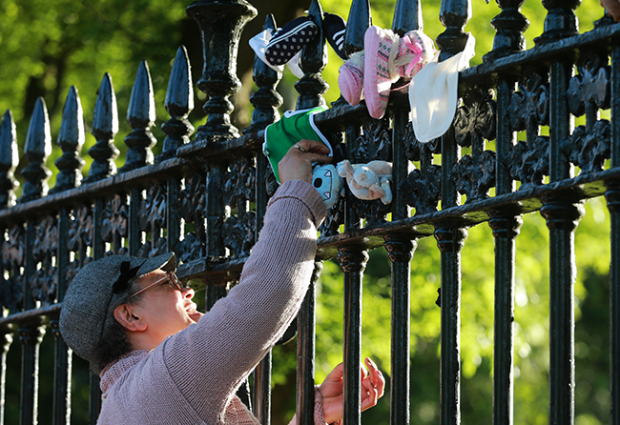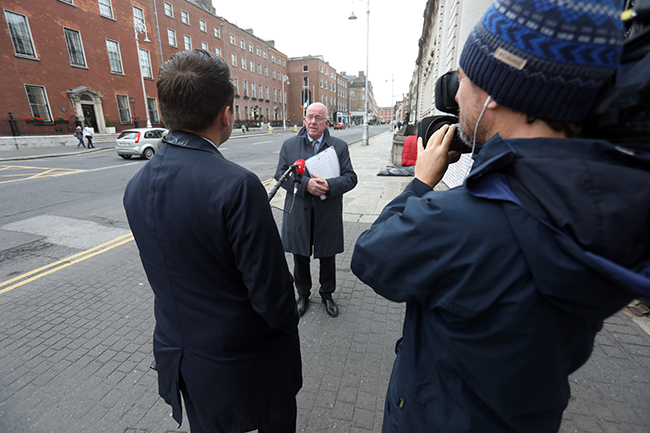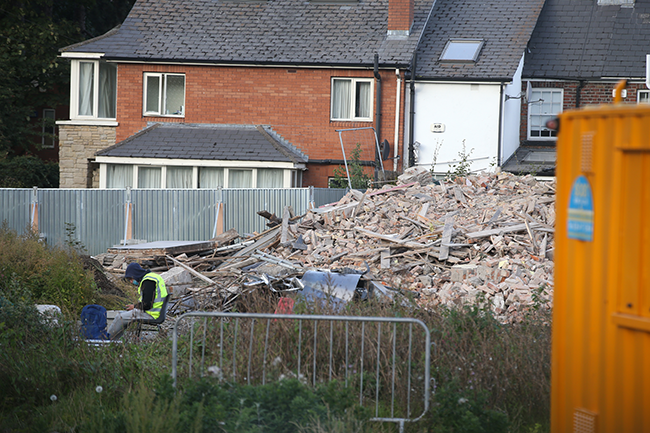18 February 2021 Edition
The road to the New Ireland

• Institutional abuse and cover ups are the result of the conservative and patriarchal hierarchies
The connection between the appalling treatment of women and children in the 26 Counties over the past century by the Church and the State and the sectarianism of the Six-County State, bloodily birthed 100 years ago, may seem tenuous or contrived.
However, they are intimately linked - the Mother and Baby Homes, institutional abuse, industrial schools, and the cervical check cover up in the 26 Counties and the apartheid statelet in the North both prospered grotesquely as the result of the conservative, patriarchal hierarchies imposed after the failure of the 1916 revolution and the subsequent Partition of Ireland.
The story of the past 100 years is inglorious for both jurisdictions. The supremacism of the ruling elite of a century ago can be traced through to the governing enablers of oppression in the present day.
Today, the antipathy towards the working class can be seen in the Dublin government’s decision not to pay student nurses; not to reform housing, instead prioritising developers and multinationals; hollowing out communities with cuts to essential supports and frontline services; and the creation and support of a private healthcare industry, denying access to health to those who cannot pay.
Anyone working in a TD’s constituency office could tell of a thousand more affronts to citizens. It is far from a level playing field and the deck is stacked against many before they are even born.
The Dublin government is literally ashamed of the independence struggle. What proud nation would purport to commemorate the army of its oppressor, as former Fine Gael Justice Minister Charlie Flanagan did in 2020? What self-respecting country would dream of bulldozing the last remaining physical links to the leaders of 1916, but the home of The O’Rahilly is gone and, if the government has its way, Moore Street will go too. This must be resisted.

Former Fine Gael Justice Minister Charlie Flanagan
The North has gone through something of a metamorphosis. The hegemony of political Unionism is gone, but the Statelet remains, as does the elitist mindset of some with a superiority complex, like the Unionist councillors of Causeway Coast and Glens who recently staged the zoom-era equivalent of a ‘walk out’ when they turned their cameras off during a Conradh na Gaeilge presentation.
Petty though this behaviour undoubtedly is, it has serious consequences; it displays the type of intolerance that is still evident in the North, despite the existence of the power sharing government and the endorsement of the Good Friday Agreement almost 23 years ago.
Brexit has highlighted the practical outworking of the North’s status as a British jurisdiction; particularly for citizens in the 26 Counties who, unsurprisingly given the lack of political leadership, have long considered the injustices of the North as none of their business. Brexit demonstrates that one part of this country being under British rule is negative for the entire island economy.
Above all else, Brexit has laid bare the real consequences that being British subjects has for citizens of the North. The sheer unfairness of the fact that the north, which voted to remain, is now out of the EU is not lost on even the most politically disinterested.
Even though the North has undergone reform since 1998, and some excellent measures have been taken, truly meaningful change is still a work in progress.
Our goal of making the North the best that it can be in the current political circumstances does not affect our resolve to full Irish independence from British rule.
Even the health service – the one positive that people associate with the British connection – has been stripped out by the Tory government. Research published by the ESRI in January found that healthcare outcomes from the NHS in the North and the HSE were of a comparable standard and that the performance of the NHS in the North lies well below that of England, Scotland, and Wales.

The home of The O’Rahilly is now gone
The Covid-19 pandemic has had a colossal impact, not only on people’s lives and livelihoods, but also on their intrinsic values. The effects of the pandemic and the necessary, but long and lonely, restrictions have led to a reassessment of the type of society we want to live in.
The reunification of Ireland is the necessary first step to building a better nation.
We cannot build an Ireland of Equals with one hand tied behind our back, without political autonomy and self-governance for the North.
The realisation of the New Ireland in which people have access to housing, healthcare, social protection, education, which is supportive of business and the rural economy and which engages positively on the world stage, is not possible until we can establish a national democracy.
So, in this phase of our struggle, we need to invest all of our energies and orientate the entire political strength which our party commands towards building a mass movement for the Referendum on Irish Unity.
We need to welcome people from diverse backgrounds who are also making the call for the referendum. At times, these will be our political opponents, that does not matter, this debate is about the future of our nation. It does not belong to ourselves alone.
Crucially, we need to listen to the growing number of people in the North who are disillusioned with traditional Unionist political parties and who are open to engaging on the constitutional arrangement on the island.
Certainly, in terms of the economy and on social issues political Unionism remains unprogressive and, on many issues, the Unionist parties lag way behind those they claim to represent.
On the issue of identity, republicans need to remain true to our egalitarian codes.
On the 100th anniversary of Partition, we need to state firmly - No one in the Unionist or post-Unionist community in the north today bears responsibility for the actions of some in 1921.
And for those in the North who wish to celebrate the creation of Northern Ireland, we should be respectful of their right to cultural expression.
Irish Unity is not a threat to identity and can never dilute or diminish identity or kinship. The new and agreed Ireland will be the sum of all of its parts.
As we face the prospect of finally emerging from the pandemic restrictions of the past year, now is the time to focus activity at all levels of the party on the Uniting Ireland campaign.
Now is the time to secure and win the referendum on Irish Unity and plan for the New Ireland which has equality and diversity at its core.
That is both the challenge and the prize for all who support democracy in Ireland.
Emma McArdle is Policy and Campaigns Manager on Sinn Féin’s Uniting Ireland Project




